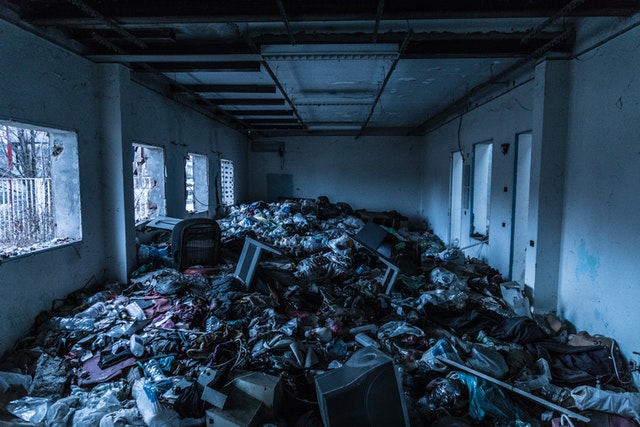
Sustainability is a practice that can and should be implemented routinely and faithfully in everyone’s life. Sustainability is a habit defined as the avoidance of the depletion of natural resources to consistently maintain an overall ecological balance in the pursuit of keeping our environment healthy and thriving.
Incorporating this mentality and applying it in as many ways as possible throughout your life requires a bit of intentionality and discipline. Once sustainability is of priority in your daily life, you will feel more confident and proud of the products you’re using, companies you purchase from, and most notably, contributing to a better future. Here are a few measures that can be taken as you enter into this green lifestyle:
DO YOUR RESEARCH
Gaining a more in-depth grasp and recognition of the components and processes that make up the products, equipment, and foods that you use or ingest regularly will aid in propelling your innate urge to practice sustainability.
Starting with products, understanding the foundation of the material creating your purchases will contribute to your overall knowledge of which companies are making sustainability precedence in their business. An easy way to do this is to take note before purchasing any product to read about the contents used in its creation carefully. Look for words surrounding the phrase ‘recycled content’. Upon reading this, you can more confidently tell whether or not the producers are incorporating sustainable practices within their manufacturing process.
However, to gain even more confidence in the product’s green nature, it’s crucial to look even closer into the ‘recycled content’ portion of your products’ materials by checking the company’s credentials defined below.
CHECK CREDENTIALS
SCS Global Services, standing for Scientific Certification Systems, provides consumers with the tell-all sign on whether or not a company has ethically reached proper product evaluation upon their use of recycled materials.
The Recycled Content certification (highlighted above) is an endorsement that SCS Global Services offers businesses to promote their sustainable practices. Below is a description from SCS that provides details as to what the standard is for earning this achievement:
“The SCS Recycled Content Certification evaluates products made from pre-consumer or post-consumer material diverted from the waste stream. Certification measures the percentage of recycled content to make an accurate claim in the marketplace.”
This type of assurance from a company where a trusted third party has certified their means of production and product material attainment is very telling upon purchasing. Seeking this specific certainty affirms both the company and the purchaser’s intention to keep to sustainable measures and practices during selling and buying transactions.
GOING GREEN
Many areas within one’s life can be directed sustainably to ensure positive effects on the earth further. Here are a few spaces that prove to be both beneficial and rewarding when modified correctly and efficiently to better your carbon footprint and sustainable habits:
– EATING
Similar to checking credentials on a product before purchasing, prioritizing this kind of mindfulness when eating will yield the same productive results. Simple measures to achieve this lifestyle include reducing your packaged food purchase, looking to local grocers and farmers for organics, and trimming your overall food waste.
– FASHION
The fashion industry would not strike most as a frontrunner regarding pollution, but it is the world’s 2nd most polluting industry, behind oil production. Considering this, we must utilize this information as a propelling notion to do our part in combating the high pollution rate. There are numerous ways to work towards this goal. A simple way to start would be only to purchase locally made clothing. International fashion transportation requires hefty means when freighting the products to your frequently shopped stores. These vehicles emit unreasonable impurities, so eliminating your participation in purchasing these products will be one less person being a part of this process.
– ENVIRONMENT
Reduce, reuse, recycle! Stay mindful of how you’re using and disposing of materials. Another straightforward practice to incorporate into your livelihood that will aid in bettering the globe is utilizing renewable energy. Starting with energy, being in active pursuit of using renewable energy. Solar and wind power is a productive means to help the ecosystem because the resource can be replenished quicker than used, eliminating your involvement in increasing the impact of fossil fuels.
BUSINESSES THAT ARE LEADING THE CIRCULAR ECONOMY
There are many companies across the globe doing their part in contributing to the healthful future of the world in which we live. Whether with product manufacturing or shipping, businesses are finding innovative techniques and putting forth their best practices to help our ecosystem. A great example of a company managing its products with a green mindset is Epsilyte, a market supplier of sustainable insulative polymers.
Epsilyte does not manufacture packaging, insulating panels, cold chain, or geo-foam. However, Epsilyte Expandable Polystyrene is part of hundreds of products as the foundational quality layer when incorporating recyclable materials into products.
Their latest product line includes a unique grade of POLYSOURCE® that SCS Global Services has preapproved. They are using 50% recycled content in partnership with one of the world’s largest bike manufacturers. POLYSOURCE® is the product line often used as the padding in safety helmets, such as ski helmets, equestrian helmets, motorcycle helmets, etc.
To assure manufacturers that this is not simply greenwashing, Epsilyte went through the entire process directly with SCS Global auditing the certified recycle process production to ensure to consumers that the product is manufactured with 50% certified recycled content. This is an excellent example of a company going the extra mile so that our consumers today can confidently trust the sustainable products of tomorrow.



